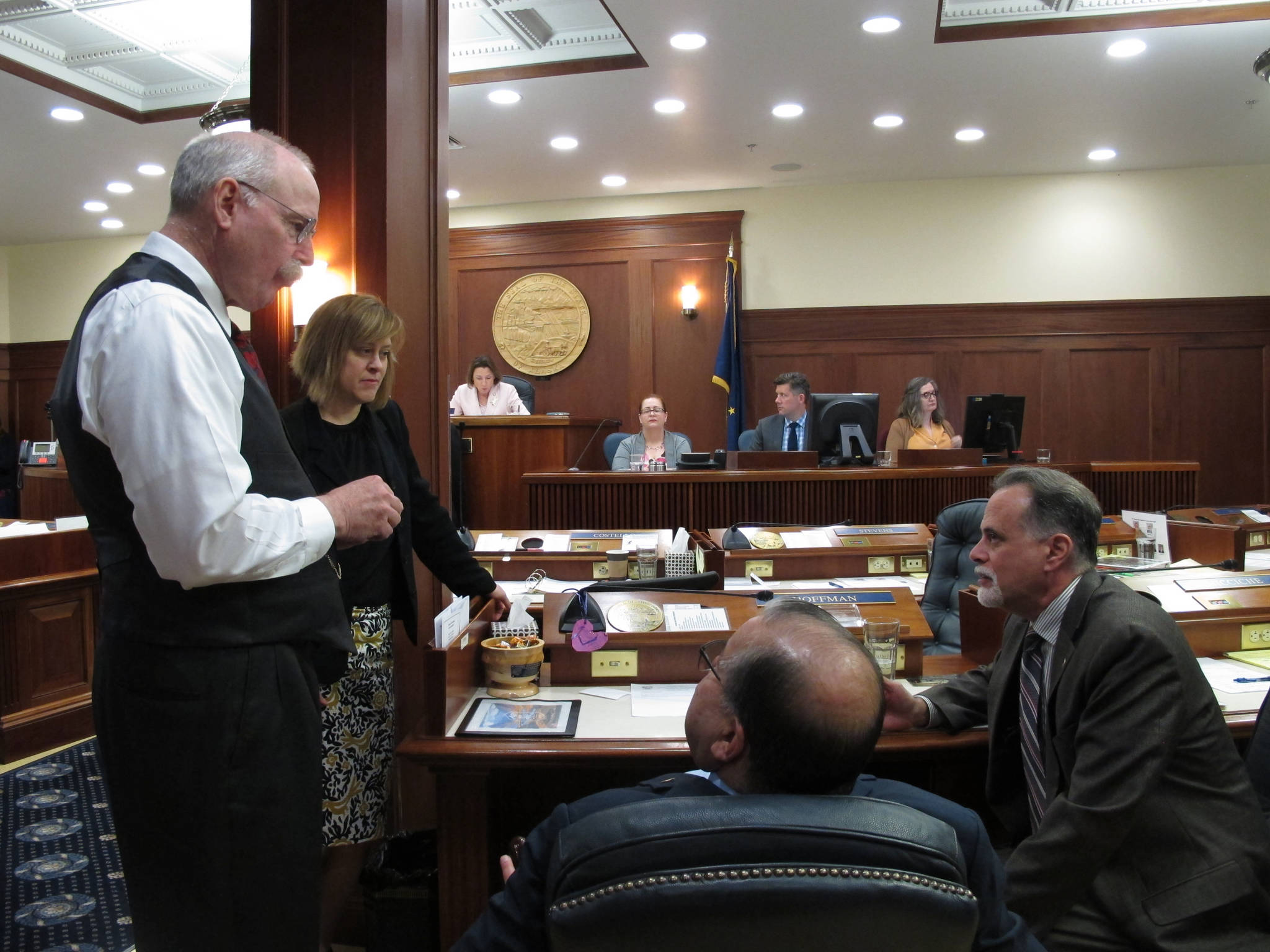JUNEAU — The Alaska Senate on Tuesday narrowly voted down a full dividend payout from the Alaska Permanent Fund this year, with a prominent supporter of the proposal absent.
The 10-8 vote came after the Senate, by the same tally, adopted an amendment calling for a full payout with checks to qualified residents estimated to be around $3,000. The initial bill proposed $1,600 checks.
At least 11 votes were needed for the bill to pass.
Sen. Mike Shower, a Wasilla Republican who has supported a full payout, posted on Facebook Saturday that he would not be in Juneau because of his work. Shower, a pilot, said he had used up vacation and leave time as this year’s sessions have dragged on. The Senate majority’s communications director said Shower has an excusal for the rest of the special session.
Senate Democratic Leader Tom Begich of Anchorage also was absent Tuesday.
“We’ll have a dividend for the public we just don’t know the amount. The process continues,” Senate Finance Committee Co-chair Bert Stedman told reporters after the vote, acknowledging it’s possible that supporters of the bill could seek to revive it.
Debate over the dividend paid to residents each year has snarled efforts to finalize a state budget, with the July 1 start of the new fiscal year looming.
House Speaker Bryce Edgmon in a statement said debate over this year’s dividend is “consuming the Legislature.” Lawmakers should prioritize passing a budget and then focus on the questions surrounding the future of the Permanent Fund, he said.
The Senate included a full dividend in its version of the operating budget, which left a $1.2 billion hole that needed to be filled. The House did not address the dividend in its version. Senate President Cathy Giessel has said members of her Republican-led majority had indicated they were willing to support a full dividend this year “if other contingencies were met, that is, the formula going forward would be changed after this year.”
Supporters of a full payout argued the existing dividend calculation should be followed, a position Gov. Mike Dunleavy also has taken, and see it as key to restoring trust with the public. The existing calculation hasn’t been followed the last three years amid an ongoing budget deficit.
But critics said the existing formula is not sustainable and conflicts with a law passed last year calling for limited withdrawals from Alaska Permanent Fund earnings for dividends and government expenses. That law calls for a withdrawal of $2.9 billion for the upcoming fiscal year. A full dividend is estimated to cost $1.9 billion.
The earnings reserve account was valued at $19 billion at the end of April; Republican Sen. David Wilson of Wasilla said the state can afford a full dividend this year.
Sen. Lora Reinbold, an Eagle River Republican, said lawmakers would be “law-breakers” if they did not follow the dividend calculation and would be “taking” money from Alaskans’ pockets.
Lawmakers, before deciding last year to begin using fund earnings to help pay for government, blew through billions of dollars in savings as they grappled with how best to address a deficit that has persisted amid low to middling oil prices.
Fairbanks Republican Sen. Click Bishop, his voice rising, said he wants to ensure there’s a dividend going forward.
“And I ain’t gonna be part and parcel of walking through $19 billion. I’m a ‘no’ vote,” he said on the floor Tuesday.
A 2017 Alaska Supreme Court decision found then-Gov. Bill Walker acted within his authority when he cut the money available for dividends in 2016. The decision also said the dividend program, absent a constitutional amendment, must compete for funding like other state programs. Dunleavy has disagreed with that interpretation, seeing the money for dividends instead as a fund transfer.
He told reporters lawmakers can spend time this summer and fall making a case to Alaskans if they believe the dividend formula should be changed but he maintains that proposed changes should go to the people for a vote. Those discussions would not have to take the form of a special session, he said.
• By BECKY BOHRER, Associated Press

